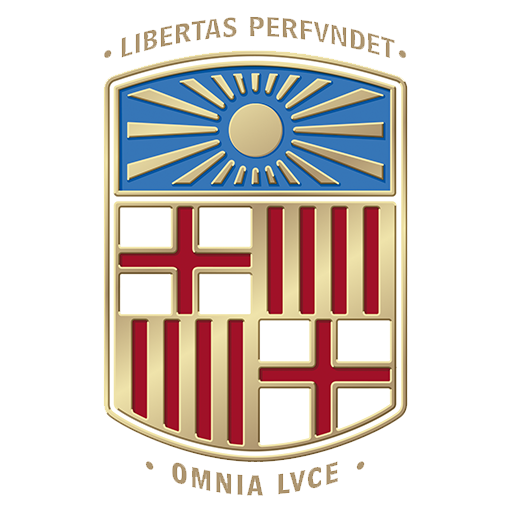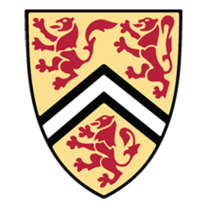Year 1
Our first year has been designed to provide a contemporary and flexible educational model that builds upon essential engineering fundamentals to develop your broader understanding of behaviour, policy, entrepreneurship, and global perspectives and kindles the passion necessary to address the societal challenge agenda. The first year is shared across the disciplines of Aerospace Engineering, Civil Engineering, Mechanical Engineering, and Electronic, Electrical and Systems Engineering.
Electrical Engineering 1 - 20 credits
In this module, the fundamentals of electronic and electrical engineering are covered. It will begin with analogue circuits describing the fundamentals of circuit analysis and the design of analogue devices. The fundamentals of digital systems will then be covered using Boolean algebra and related techniques to analyse digital circuits up to an introduction to flip flops. Finally electrical power and machinery systems will be introduced.
Engineering Materials - 10 credits
The aim of the module is to introduce the range of materials and their key properties used in engineering in order to allow them to select the appropriate materials for a given application. The module also introduces fundamental science that determines the electrical or mechanical properties of materials, such as atomic / molecular structures. In addition students will also be introduced to software which will allow them to model the properties and behaviour of engineering materials and analyse the results of experiments.
Engineering Mathematics 1 - 20 credits
The module aims to enhance student knowledge and understanding of the mathematics used in engineering and to develop the skills of its use.
Fluid Mechanics and Energy Transfer - 20 credits
In this module, the fundamentals of fluid mechanics and energy conservation, and introduce associated engineering applications.
Integrated Design Project 1A - 10 credits
The aim of the module is to introduce students to the design process and the skills employed therein, within an engineering context.
Integrated Design Project 1B - 10 credits
The aim of the module is for students to continue the design process and the skills employed therein, within an engineering context.
Introduction to Computing for Engineers - 10 credits
The aim of this module is to introduce engineers to computers and computer programming using an important modern programming language which has applications from small embedded systems to supercomputers.
Mechanics 1 - 20 credits
In this module, the mathematics and scientific principles related to mechanics in the context and application in engineering. The module covers: general principles, the mechanical properties of material and the basic principles of analysis, all underpinned with essential mathematics. Where relevant, historical examples are embedded into the module in order to provide context for the taught material.
Year 2
Your second year will build on the broad base of Year 1, and begin your departmental specialisation with coverage of the core fundamentals that underpin Civil Engineering. The strong design theme running through our programmes will become apparent, where detailed design work shows you how to apply the taught theory to design key components of Civil Engineering structures, continuing the theme of integrated design project working established in Year 1.
Construction Practice and Management - 10 credits
Engineering Mathematics 2 - 20 credits
Geotechnical Engineering 1 - 20 credits
Materials Engineering 1 - 20 credits
Integrated Design Project 2 - 20 credits
Open Channel Flow Hydraulics - 10 credits
Structural Engineering 1 - 20 credits
To progress to year 3 of the MEng, a student is required to have performed well and met the progression requirements. Failing these criteria means a student progresses to a BEng. Contact the Admissions Team for details.
Year 3
The later years of the course allow you to develop further as your specialisation increases. You have the option to choose some modules and can also tailor your study towards your interests through individual projects. In the final years of the course, we aim to challenge your innovative, creative, technical, management and presentation skills to bring together your learning over the degree programme.
Core modules
Applied Fluid Mechanics - 10 credits
Geotechnical Engineering 2 - 20 credits
Integrated Design Project 3 (MEng) - 20 credits
Materials Engineering 2 - 20 credits
Structural Engineering II - 20 credits
Water Transmission and Treatment - 10 credits
Optional modules
Choose 20 credits of optional modules, examples listed below. Optional modules are subject to timetabling constraints.
Civil Engineering Group Management Project A - 10 credits
Civil Engineering Group Management Project B- 10 credits
Industrial Project 1 (Civil Eng) - 20 credits
Surface and Groundwater Hydrology- 10 credits
Year 4 – Industrial Year
The aim of this activity is not simply to provide paid work but to ensure that its nature and quality are commensurate with your professional development. A key element is to ensure that students and companies are well matched, maximising both parties’ experience.
Typically you will have to pass the interview process run by the company with which you are seeking a placement. The industrial placement gives you experience of working in the mechanical engineering field which will enhance your CV and allow you to acquire further knowledge and employability skills. Our industrial liaison tutor and dedicated internships officer will be able to advise you about the application procedures and a series of industrial lectures, given by a range of employers throughout the year will provide networking opportunities.
As well as benefitting from a period of approved and paid employment with all the usual entitlements of the job such as paid leave, networking, etc, your degree programme will change to have the additional words ‘with industrial year’ added to the title, in recognition of your efforts. This type of placement qualifies you towards one year of your graduate training period towards Chartership.
During the industrial year, you will retain your undergraduate status with us, even though you are in employment, and will continue to benefit from being a member of this University at a reduced student fee level.
It should be noted that it is your responsibility to find a placement. If you cannot find a placement or are unsuccessful during the recruitment process then you will revert to the MEng Civil Engineering programme (H201).
Tuition fees for placement years (where applicable)
There is a reduced tuition fee for the academic year spent in industry or whilst studying abroad (where available). Fee information and further clarification is available on the University fees and funding page.
Year 5
All final-year students will also ‘go it alone’ in a supported research project where you develop an understanding of an area of civil engineering that particularly interests you. You have an individual supervisor throughout the research project and may work with their research team for additional support.
Core modules
Geotechnical Engineering 3- 20 credits
Individual Engineering Project (MEng) - 40 credits
Materials Engineering 3 - 20 credits
Structural Engineering 3 - 20 credits
Optional modules
Choose 20 credits of optional modules, examples listed below:
Management theme:
Financial Decision-Making in the Business Environment - 10 credits
Synoptic Engineering - 10 credits
Engineering Production and Risk Management in Construction - 20 credits
Sustainable Transport Policy - 20 credits
Roads/Transportation Theme:
Sustainable Transport Policy - 20 credits
Road Safety - 20 credits
Road Asset Management- 20 credits
Pavement Engineering - 10 credits
Road Design and Planning - 20 credits
Water Theme:
Modelling and Design for Fluid Dynamics - 20 credits
Wind Engineering and Bluff Body Aerodynamics - 20 credits
Structural Theme:
Forensic Engineering - 20 credits
Seismic Engineering - 20 credits
Wind Engineering and Bluff Body Aerodynamics - 20 credits
Geotechnics Theme:
Engineering Earthworks - 20 credits
Underground Construction - 20 credits
Sustainable Construction - 20 credits
Please note: The modules listed on the website for this programme are regularly reviewed to ensure they are up-to-date and informed by the latest research and teaching methods. Unless indicated otherwise, the modules listed for this programme are for students starting in 2023. On rare occasions, we may need to make unexpected changes to core modules; in this event we will contact offer holders as soon as possible to inform or consult them as appropriate.
Show less










